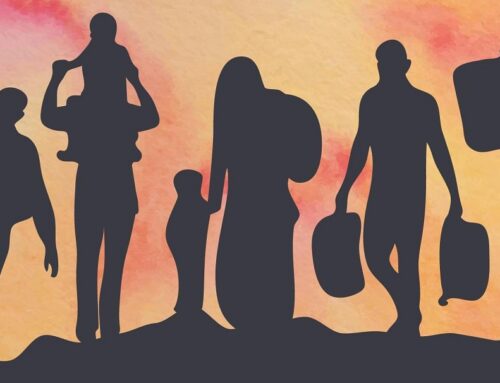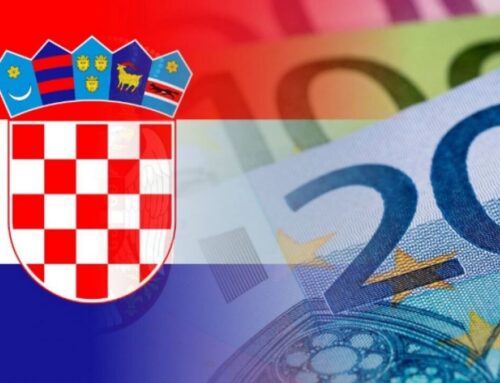After declaring its independence in 1991, the media space in the Republic of Macedonia gained power and prominence. Multi-ethnic readership and audiences, exhausted by the journalism of the former country, were exposed to the immediate influence by hundreds of private newspapers and magazines and around 200 private broadcasters that took to the air.
The Constitution of the Republic of Macedonia guarantees freedom of expression and yet this freedom is not always upheld impartially. The media situation is still much livelier than in the past, but it has suffered from governmental interference, political bias, and quite often, poor quality of journalism. Macedonia is now ranked 111 in the 2017 World Press Freedom Index.
According to Reporters Without Borders “There were many reports of threats, violence, harassment, and intimidation of journalists during political demonstrations in 2016, but of those responsible, few were charged. Political instability affects the work of journalists, and pressure from the ruling party has led some media outlets to censor themselves.” As a result, the country and its citizens have been exposed to multiple governmental hindering interventions in the media space and its independence for more than a decade. From a leader in the region in democracy and respect of human rights and freedoms, the country found itself confined within the borders that the former Government had set in terms of freedom of speech and this freedom’s extent. What has been obvious throughout this period, and what many national and international agencies have attempted to speak against, was the lack of transparency, and the prominent and biased voice of governmental speakers and supporters.
The EU Commission’s report from 2014 acknowledges the catastrophic situation in which the media market finds itself, with a large number of digital and written media fighting to survive. According to it “Government influence on media output is exercised through inter-alia, statefinanced advertising. There is a scarcity of truly independent reporting and lack of accurate and objective information being made available through mainstream media to the public, and a lack of informed public debate.” Individual and sporadic instances of freedom-of-speech violations had been present and spoken about before, but with the wiretapping scandal of May 2015, when members of the former Government were accused of illegally wiretapping politicians, journalists, and citizens, the issue of media freedom took the central position in the fight against the ongoing repressive politics and policies.
With the recent change of Government, the expectations and challenges in this domain are high. According to its draft programme for the period between 2017 and 2021, the Government intends to devote great attention to remedying the current situation by adopting efficient regulatory bodies and a model based on those used by other EU Member States, especially the British OFCOM. What OFCOM does is licensing all UK commercial television and radio services in the UK, expecting them to respect the terms of their licence, or risk having their licenses revoked. According to its Code, broadcasters will need to have regard to their obligations under equal opportunities legislation, and the content (in)appropriate for certain target groups. OFCOM also considers and restricts the broadcasting of adult programmes, party political and referendum broadcasts and advertising, and has penalties developed for code violations. Among the other steps the new Government plans to take to bring MTV (Macedonian Television), the biggest national television and radio service, on the right track, is to change the way it is being financed. Instead by the citizens, it will be supported partially by the Budget, sales of this medium’s programmes, as well as by revenues of other cable operators. Political advertising will be forbidden, and allowed exclusively and only during election campaigns. Media density will also be reconsidered as to provide more quality and support for the democratic system of the country.
The public’s trust in the media is still generally low, and surveys indicate that a majority of the population believes news media would continue to serve the interests of powerful people and organisations. However, exhausted by opinion journalism and fake news, Macedonian audiences are putting a lot of hope in the new governmental policies, and it is yet to be seen whether, or when this vicious circle ends.
References:
Australian Law Reform Commission. Appendix 3. International Comparison of Classification and Content Regulation- The United Kingdom. Web 8 December 2017. https://www.alrc.gov.au/publications/appendix-3-international-comparison-classificationand-content-regulation/united-kingdo
European Commission. The Former Yugoslav Republic of Macedonia Progress Report. 2014. OFCOM. TV and Radio Broadcasting Codes. Web 8 December 2017. https://www.ofcom.org.uk/tv-radio-and-on-demand/broadcast-codes
Reporters Without Borders. Web 26 November 2017 https://rsf.org/en/macedonia
Reporters Without Borders. World Press Freedom Index. Web 8 December 2017. https://rsf.org/en/ranking#
Socijaldemokratski Sojuz na Makedonija. Web 26 November 2017. http://sdsm.org.mk/News.aspx?idNews=7681&lng=1




Leave A Comment